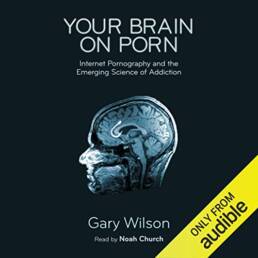Sex and Porn
 The word pornography comes from the Greek words “porno” and “graphie” meaning “the writings of or about prostitutes”.
The word pornography comes from the Greek words “porno” and “graphie” meaning “the writings of or about prostitutes”.
Pornography as a stimulus enters the body directly through the senses, mostly the eyes and ears. It has a direct link to the central nervous system, specifically the reward system or pleasure centre of the brain. It provides rapid sexual arousal. The physiological changes it causes happen almost immediately: the heart beats faster; breathing becomes shallower and a watcher starts to feel a throbbing in the genitals.
Pornography today via the internet is different from pornography of the past. The static photos of gentlemen’s magazines or even blue movies do not have the impact on the brain that today’s endless supply of streaming, hyper-arousing videos have. The interactive nature of the internet allows people to shift easily to more arousing material as soon as they become bored with current fare. As people watch a lot of porn, their brains gradually begin to produce less dopamine in response. This leads to reduced desire for what they are watching. However they can restore the dopamine balance by watching more shocking or gross videos. These immediately deliver a bigger ‘hit’ of dopamine.
The body likes balance. When we have had enough food, drink or sex our brain signals it has had enough. This satiation signal helps us to stop eating, drinking or having sex so that we can get on with other activities necessary for everyday living. But when we ‘binge’ on a substance or behaviour, this satiation mechanism can be put on hold temporarily, overridden by the availability of the binge stimulus. In other words, our brain interprets the bingeing on a reward as a ‘survival’ need and allows us continue to indulge ourselves temporarily. Imagine a bear before hibernation for the winter, it can swallow 20 salmon without being ill.
 Many adolescent virgins today use porn for education about sex and for thrills. They usually watch it alone. This voyeuristic practice sexually conditions their sensitive brains over time to expect hyper-stimulating novelty. It can lead to the development of fetishes, unexpected changes in sexual taste and addiction in some. This also applies to adults, many of whom started watching porn from early in their adolescence. This form of brain training deprives the watcher of the health benefits, personal development and multiple pleasures of real sexual relationships.
Many adolescent virgins today use porn for education about sex and for thrills. They usually watch it alone. This voyeuristic practice sexually conditions their sensitive brains over time to expect hyper-stimulating novelty. It can lead to the development of fetishes, unexpected changes in sexual taste and addiction in some. This also applies to adults, many of whom started watching porn from early in their adolescence. This form of brain training deprives the watcher of the health benefits, personal development and multiple pleasures of real sexual relationships.
Many men bingeing on porn do so by ‘edging’ to each new video, that is almost reaching climax by masturbation but not quite. This allows them to interact with sexually arousing images for hours and hours. Users are always looking for that perfect image to end on. They don’t feel satiation as they might do if they were having sex with a partner and reaching climax.
Internet pornography is like mating season, but a mating season that never ends. The primitive brain sees it as a ‘feeding frenzy’, a huge fertilization opportunity and switches off the satiation mechanism.
The brain then seeks to adapt to this never before experienced bonanza – endless willing mates seeking fertilization with whom we can express our sexual desire.
Through the consumption of internet porn sexual desire is being manipulated by strangers for their profit and to our detriment. Heavy consumption of internet porn is particularly harmful to adolescents whose brains are primed for sexual learning as preparation for adulthood. They are learning to wire their brains to artificial material. Instead of learning how to flirt, maintain eye-to-eye contact, develop respect and touch in a loving or sexual way with real potential partners, people are strengthening pathways to manufactured rewards.
Gary Wilson, author of “Your Brain on Porn”, discusses in this Ted Talk whether our brains evolved to handle the hyperstimulation of today’s Internet enticements. He also discusses the disturbing symptoms showing up in some heavy Internet users, the surprising reversal of those symptoms, and the science behind these 21st century phenomena.
Photo by Steinar Engeland on Unsplash


